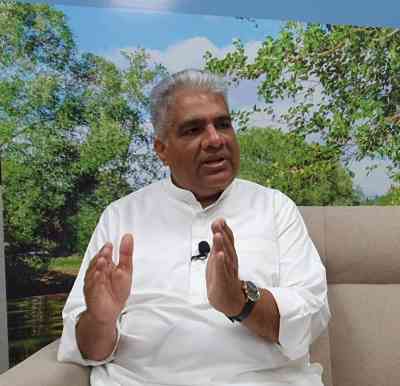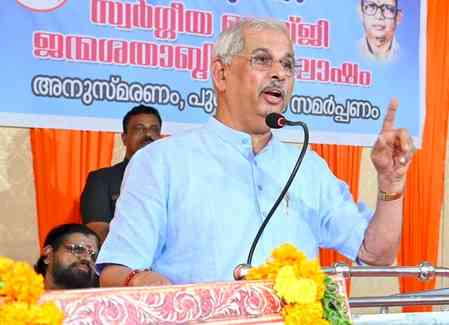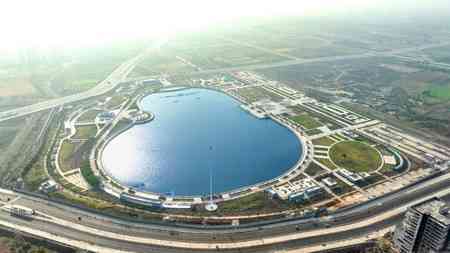Minister unveils action plan to combat desertification
Environment and Forest Minister Bhupender Yadav on Saturday unveiled the 'National Action Plan to Combat Desertification and Land Degradation through Forestry Interventions'.

New Delhi, March 25 (IANS) Environment and Forest Minister Bhupender Yadav on Saturday unveiled the 'National Action Plan to Combat Desertification and Land Degradation through Forestry Interventions'.
The Minister on Saturday launched the Aravalli Green Wall Project, a major initiative to green the five km buffer area around the Aravalli Hill Range in five states at a function organised to celebrate the International Day of Forests at Tikli Village in Haryana.
The Aravalli Green Wall Project is part of the Union Environment Ministry's vision to create green corridors across the country to combat land degradation and desertification.
The project covers the states of Haryana, Rajasthan, Gujarat and Delhi -- where the Aravalli hills landscape span over 6 million hectares of land.
The project will involve planting native species of trees and shrubs on scrubland, wasteland and degraded forest land, along with rejuvenating and restoring surface water bodies such as ponds, lakes and streams. The project will also focus on agro-forestry and pasture development to enhance the livelihoods of local communities.
In the initial phase, 75 water bodies will be rejuvenated under the project, starting with five water bodies each in every district of the Aravalli landscape on March 25. The project will also include large-scale plantation drives and conservation of water resources in the Aravalli region.
The project will cover degraded land in Gurugram, Faridabad, Bhiwani, Mahendergarh and in Rewari districts of Haryana.
Speaking on this occasion, the Union Minister said that the Aravalli Green Wall Project will not only increase the green cover and biodiversity of the Aravalli through afforestation, reforestation and restoration of water bodies, but also improve the soil fertility, water availability and climate resilience of the region.
He said that the project will benefit the local communities by providing them with employment opportunities, income generation and ecosystem services.
He appreciated the efforts of the Haryana Forest Department and other stakeholders for their cooperation and support in implementing the project and reiterated the government's commitment to achieve the national goal of creating an additional 2.5 billion tonnes of carbon sink by 2030.


 IANS
IANS 










